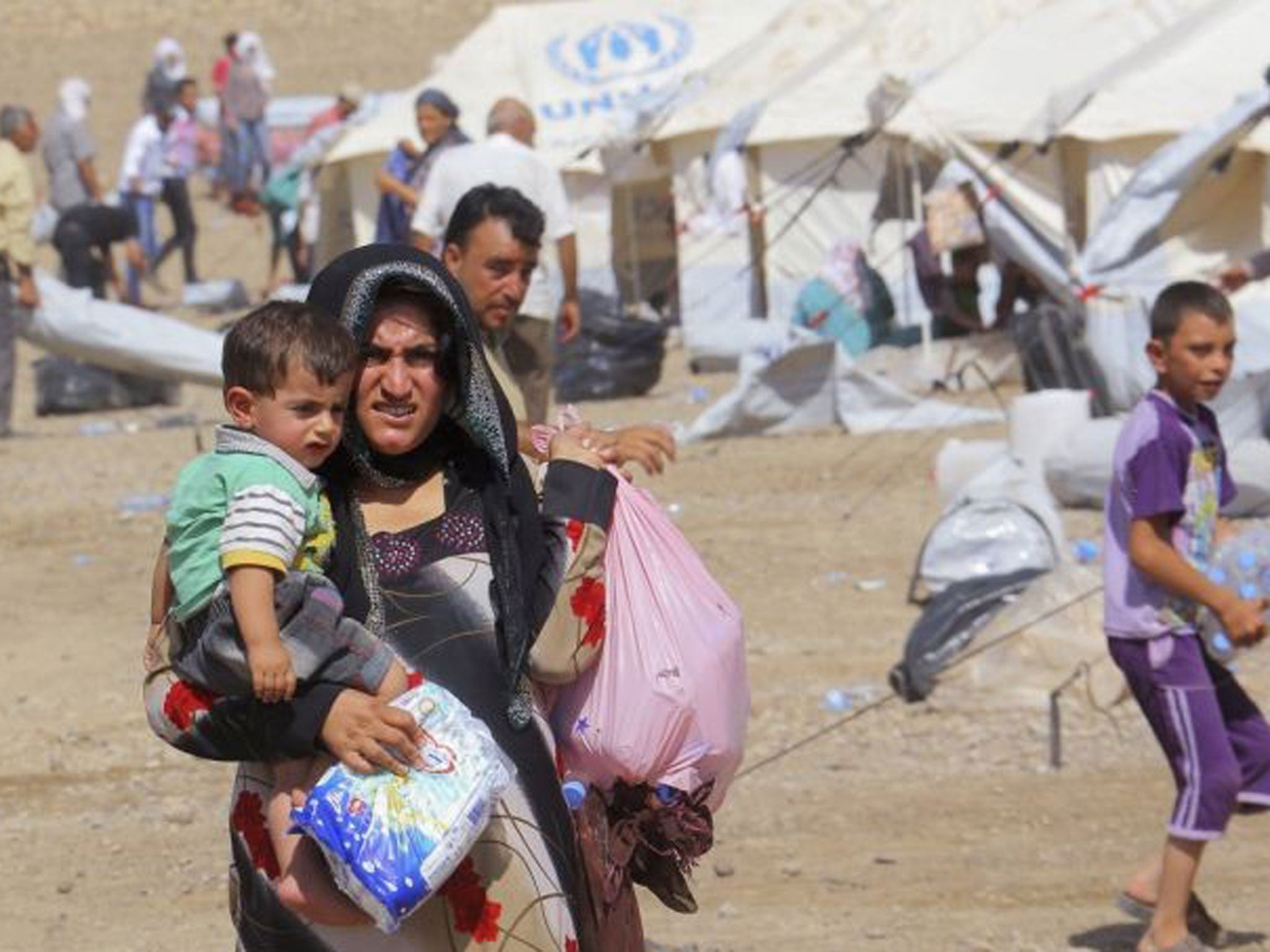A 'river' of refugees flows out of Syria as Iraqi Kurdistan opens border

Your support helps us to tell the story
From reproductive rights to climate change to Big Tech, The Independent is on the ground when the story is developing. Whether it's investigating the financials of Elon Musk's pro-Trump PAC or producing our latest documentary, 'The A Word', which shines a light on the American women fighting for reproductive rights, we know how important it is to parse out the facts from the messaging.
At such a critical moment in US history, we need reporters on the ground. Your donation allows us to keep sending journalists to speak to both sides of the story.
The Independent is trusted by Americans across the entire political spectrum. And unlike many other quality news outlets, we choose not to lock Americans out of our reporting and analysis with paywalls. We believe quality journalism should be available to everyone, paid for by those who can afford it.
Your support makes all the difference.Tens of thousands of refugees from Syria’s Kurdish-majority north-east have streamed into Iraq’s semi-autonomous northern Kurdistan region after authorities opened the border ending months of limited access.
Claire Bourgeois, the top representative of the UN High Commissioner for Refugees (UNHCR) in Iraq, referred to “a river of people coming towards the border” in an email today.
On Thursday, when the border was opened, around 5,000 refugees crossed into Iraq. Upwards of 10,000 arrived on Saturday. Today saw an additional 5,000 or 6,000 refugees entering the country according to Adrian Edwards, a UNHCR spokesman in Geneva.
“It’s a really big number to see in such a short space of time in just one area,” he said.
While Syria’s oil-rich northeast had been relatively quiet for much of the country’s two-year civil war, there has been an rise in fighting between Kurds and jihadist factions in recent months.
Jihadist groups Jabhat al-Nusra and al-Qa’ida-linked Islamic State in Iraq and the Levant want to “expel all the Kurdish people from Syria” said Alan Semo, a UK-based representative from the Democratic Union Party, Syria’s most dominant Kurdish faction. Such groups are “opening a war against all the Kurds,” he added.
Last week, Iraqi Kurdistan’s President Massoud Barzani said that he would “be prepared to defend” Syria’s Kurds if they were threatened by such groups, a statement many read as a suggestion of possible military intervention.
Before authorities reopened the border, UNHCR had registered 154,000 Syrian refugees in Iraq. The agency has counted nearly two million Syrian refugees across Iraq, Lebanon, Jordan and Turkey. It remains unclear why the Kurdistan Regional Government changed its border policy and allowed the flood of refugees to enter. The border opening caught UNHCR and other groups assisting refugees off-guard, said Mr Edwards.
Liene Veide, a UNHCR associate information officer based in Erbil said that her organization and others were focused on giving refugees water, food and shade as they arrived on the Iraqi side of the Tigris River.
As Syria’s Kurds get dragged further into Syria’s bloody civil war, uncertainty remains whether this will mean the rate of refugees entering Iraq will hold now that the border has reopened. “We have no idea what can happen tomorrow,” said Ms Veide.
Others expect more arrivals as the quality of life in Syria’s north-east declines. “People have been suffering from a lack of basic needs and they think they will be safe and get some help or relief in Iraqi Kurdistan,” said Mr Semo.
UN inspectors arrive in Syria
A team of UN weapons inspectors has arrived in Damascus for a long-delayed mission to investigate the alleged use of chemical arms in Syria’s civil war.
President Assad’s regime and the rebels have traded accusations over the purported attacks. Negotiations over allowing experts into the country dragged on for months before the UN and the Syrian government finally reached a deal last week.
AP
Join our commenting forum
Join thought-provoking conversations, follow other Independent readers and see their replies
Comments